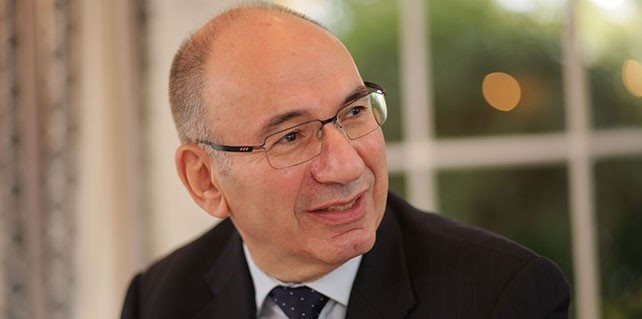Professor Elroy Dimson (pictured) could be considered a legend in the investment community, having spent the majority of his career at the London Business School, he’s now a consultant to the board of Sparrows Capital. His career has seen him write books on a range of subjects from ESG to portfolio construction and has been involved in creating mainstream indices.
“Returns are modest, and cost control is more important today. When you change your mind it's costly. Looking for advisers who are good at buy and hold measures, it’s hard to figure out when managers are going to stop outperforming but it’s very easy to see how much money goes down the drain when you sell out of one fund into another,” said Professor Dimson in response to a question on how to invest in today’s market.

Professor Dimson was speaking to Mark Polson of the ‘Lang cat’ fame during a lively debate on how markets have changed over the years. There were over 160 participants in the event, mostly finance professionals with a focus on retail investors. Fundeye joined in to hear about the amount of research Professor Dimson has done and it is staggering.
He has collated data from 23 countries since 1900 on their respective stock and bond markets, with just two, China and Russia, having gaps in this timeframe. However, as Professor Dimson is interested in long-term investing, which the host Mr Polson was keen to point out was longer than most of the listeners’ definition of ‘long term’, he said that the data only ‘gives us 6 periods of 20 years’.
Professor Dimson joked that while the phrase ‘compound interest is the most powerful force known to man’ was almost definitely not said by Einstein (to whom it is regularly attributed) it is nonetheless true. With many investors looking to pass money on to future generations, this becomes even more important as most don’t want to die ‘having spent their last available penny’.
ESG and indexing
The idea proposed by Mr Polson that retail investors will struggle to express their views on ESG in an affordable way was challenged by Professor Dimson. He said in his home city of Cambridge, there was a manager who charges just single basis points for an index fund with an ESG tilt.
One of the issues with ESG he touched upon was just how nuanced it can be. He gave examples such as Muslim investors not wanting to invest in a sausage maker even if the company does good, A Hindu wouldn’t want certain pharma companies because of animal testing. “So personal taste matters, it’s not a financial decision,” he concluded.
He joked that the recent outperformance of ESG funds is because they weren’t present in big oil or coal mining and heavy in tech, “so what a lucky break!” in reference to the stellar performance of tech stocks during the pandemic.
Again he pointed to the fact that certain companies such as Facebook might score well with one index provider for ESG and badly by another depending on views of how the company uses data etc.
The main issue with investing in ‘nice’ companies is that probably a lot of people want to do it according to Professor Dimson, which has implications on valuation and means that the returns will be less. This is compounded by behavioural finance traits such as herding which again will raise companies’ share prices and reduce returns.
The role of bonds
Despite the amount of negatively yielding government bonds in circulation, Professor Dimson said on a real return basis (as opposed to nominal returns) bonds aren’t behaving that far outside their historical norm. This is because inflation is the destroyer of bond returns, while deflation increases them. While the risk free return is zero for bonds, historically it has always been just above zero.
He said for any return you need to take on additional risk and concluded that there is still a place for bonds in a portfolio as they remain a good diversifier. He added that it’s up to the adviser and the client how much additional risk to take on but the idea that bonds are a terrible idea is something to be read in “Saturday newspaper financial columns”.





